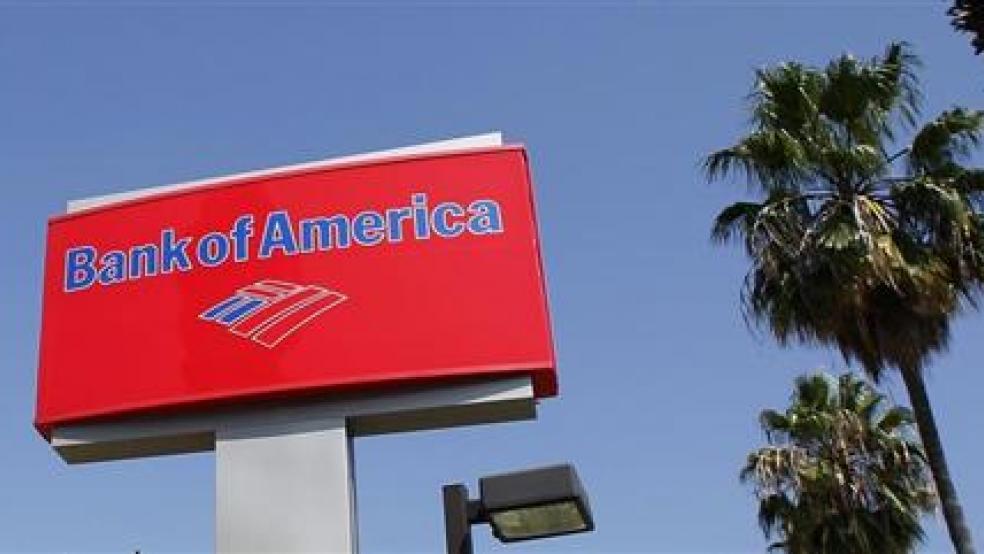The reputations of America's biggest banks hit all-time lows a few years ago, sending customers off to smaller institutions, credit unions and online-only experimenting.
Why are those customers headed back to the giants?
Emily Veach, a community and media relations manager at New York City-based CB Insights, a venture capital data services firm, says she is leaving her online bank this year over some basic issues. "I've been an online banking customer since June 2014," Veach says. "I loved the thought of banking with a non-bank, and generally, it's been great."
"But I'm probably going to switch this year because sometimes I need to write a personal check or make an international transfer, and my online bank isn't set up to handle those tasks," she says.
For Scott Marr, president of Melbourne, Fla.-based Fleet Cleaning Service USA, a transportation fleet maintenance service, going with a larger financial institution was all about comfort. "Being from a smaller town and having the option of plenty of hometown community banks, the reason that I went with a large bank is because of having branches everywhere and better technology," he says. "Yes, large banks charge fees on accounts. But isn't it worth the nominal account fee for the added convenience? I certainly think so, and I've worked at a community bank."
Related: Weak Justice for Wall Street: How a Twisted Double Standard Saved Citigroup Millions
Veach and Marr aren't alone.
Fresh data from a widespread study of the U.S. banking industry by Boston-based ath Power Consulting show that customer satisfaction with banks (especially big banks) is on the rise.
The survey shows 46% of U.S. banking consumers are "satisfied overall" with their financial institutions, up from 36% four years ago.
"The chief source of this year's gain has been among the four largest U.S. banks — Chase, Bank of America, Citibank and Wells Fargo," the survey says. "These banks made significant strides in customer service rankings, as compared to their regional and local counterparts in 2014."
Frank Aloi, chief executive at ath Power, also notes the number of bank customers who want to jump ship to a new bank is down to just 8% of all banking consumers. He cites better problem-solving and customer service, along with a bigger push to provide value to customers, as the primary drivers of the shift back toward bigger banks. "Our study results tell the story of the largest U.S. banks turning the corner regarding customer satisfaction. These national banks have committed to improving customer service after their public standing hit all-time lows a few years ago."
Related: The Corporate Giveaway Hidden in Your Credit Card Contract
"Big banks are growing, taking a larger share of the market and are enhancing the reasons that people are drawn to a large banks — convenience, comprehensive product suites, cutting-edge technology, etc. — with improved responsiveness and overall service experience," Aloi says.
The survey has its skeptics. "We disagree that big banks are receiving more business than small-business banking," says Jim Angleton, president of AegisFs, a banking and financial services firm. "Their costs of services are two times that of smaller banks and big banks have higher turnover of bank representatives. It's hard to get acquainted with [workers at] big branch banks — they don't stay long, and that is problematic."
Angleton acknowledges one advantage of the big banks: "The only reason big banks flourish is that they are on every street corner and have saturated the market — you almost are forced to conduct business with a big bank," he says, "but in fact do not have to."
There's also the tons of money spent on marketing and advertising campaigns that position large banks in a better light than smaller bank (and non-bank) competitors.
"The big banks still flex their muscles with regard to marketing," says Rohit Arora, chief executive at Biz2Credit, a New York City small-business funding provider. "They are bigger and thus have deeper pockets to spend on marketing and advertising to keep themselves top of mind."
"Consumers tend to stick with things that are familiar, particularly when it comes to financial related matters," he adds. "The branch system, for example, is a big advantage for larger banks."
This article originally appeared in MainStreet.
Read more from MainStreet:
How the Wrong Kind of Friends Can Totally Ruin Your Bank Account
Why Rolling Over Your Old 401(k) is a Good Move For Your Retirement
8 Habits of People Who Never Carry Any Credit Card Debt




